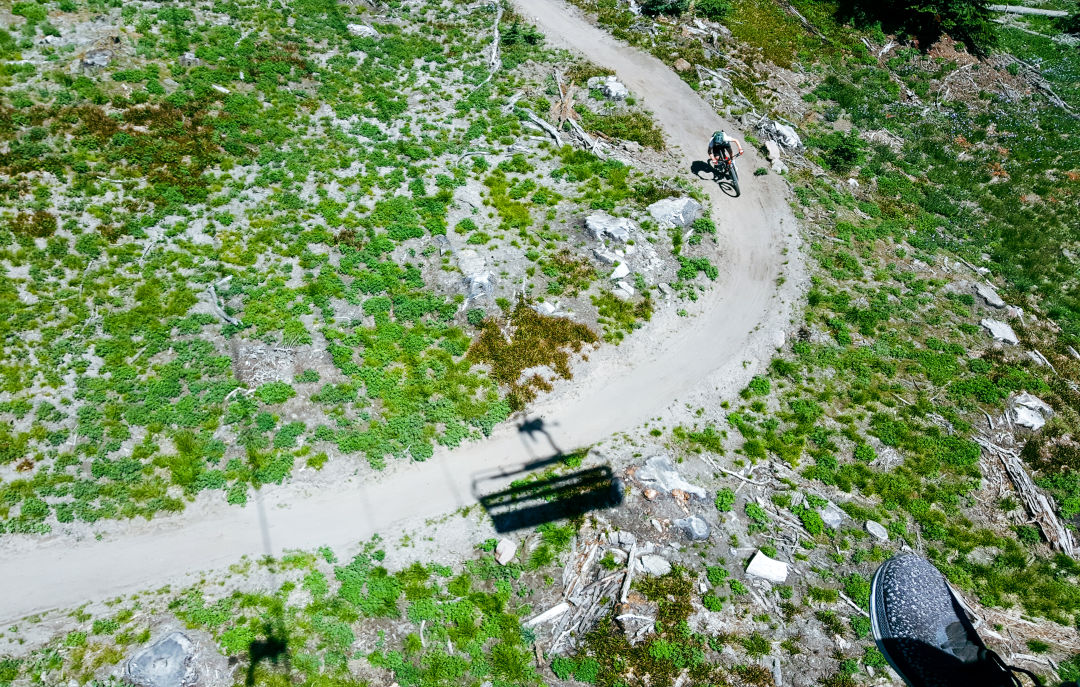Lawmakers Consider Bill to Protect Oregon’s Outdoor Industry from Lawsuits

Image: Roger Gel/shutterstock.com
Oregon lawmakers held a public hearing Wednesday in Salem on a bill that aims to protect the state’s outdoor recreation industry from lawsuits and insurance hikes that businesses say are hurting the state’s economy. Oregon, like many of its neighbors, is a recreation paradise. There is no shortage of opportunities to hike, bike, paddle, ski, climb, zip-line, and any other form of physical activity on land, water, or in the air.
But compared to its neighbors, Oregon is an outlier when it comes to liability waivers, those forms users sign before they participate in certain activities guided by a business—such as a ski resort, mountain bike park, or white-water outfitter. In 2014, the Oregon Supreme Court ruled that Bend resident Myles Bagley, who was paralyzed in an accident at Mount Bachelor in 2006, could sue the resort for negligence despite the resort’s pass containing a liability waiver. Since then, such waivers have been essentially unenforceable, though businesses have continued to use them.
In 2018, mountain biker Gabriel Owens was paralyzed when he hit a drainage ditch that threw him off course and caused him to collide with a wood post on a downhill run at Mt Hood Ski Bowl. Owens sued the resort, winning a jury verdict of nearly $12 million, then settling for $10.5 million to avoid an appeal by Ski Bowl. That year, Ski Bowl shut down its summer mountain bike operations.
Proponents of Oregon Senate Bill 754—a coalition of dozens of outdoor recreation businesses from across the state calling themselves “Protect Oregon Recreation”—say those two cases have caused insurance rates to skyrocket in recent years, which has resulted in increased costs for participants of outdoor activities, skiing and snowboarding being the two most glaring examples.
It has become an even bigger issue for smaller outdoor businesses, like white-water outfitters who have had a particularly rough few years through the pandemic, compounded by the increasing unpredictability and destruction of wildfires along rivers such as the Rogue, Clackamas, McKenzie, and North Santiam.
The bill, which had its first hearing before the Senate Judiciary Committee on February 15, would also affect indoor recreation such as fitness centers, gyms, and other facilities that provide recreational opportunities that pose some risk to the user.
Ski resorts are perhaps the biggest players in this discussion and are a slightly different animal when it comes to risk and negligence. Most resorts offer terrain parks—both in the winter when there's snow and in summer months for mountain biking—with man-made features that must be groomed constantly to maintain safety.
“The premium for general liability insurance since 2015 has dramatically outpaced inflation, tripling in just the last three years,” says Dave Tragethon, executive director of marketing and sales for Mt Hood Meadows.
“If we can restore balance to our liability waiver law, we expect that to reduce insurance rates and increase insurance availability,” Tragethon told Portland Monthly in an email. If this bill fails…. It will make recreation in Oregon less affordable and less accessible.”
Resort operators argue that participants should assume some responsibility when an activity poses an “inherent risk.” The saga in recent years has caused ski resorts such as Timberline and Meadows to offer two tiers of passes, one being more expensive for those who don’t agree to the resort’s liability waiver.
SB 754 “better defines the balance between personal responsibility when people are choosing to participate in inherently risky activities, and business accountability,” says Jordan Elliot, president of the Pacific Northwest Ski Area Association.
Ski Bowl general manager Mike Quinn says cases of tragic situations involving injury and death across Oregon have spurred tough conversations about where to draw the line when it comes to individuals’ responsibility and a business’s liability.
“The passage of Senate Bill 754 would be a positive result for the entire outdoor recreation and fitness community in Oregon,” Quinn told Portland Monthly in an email. “This law will bring certainty to the businesses facilitating recreation and the consumers participating for the responsibility they each assume.… Waiver reform is a meaningful step toward a more evenly weighted future when it comes to assumed recreational risks.”
They key change the bill would create to Oregon law is to reinstate the enforcement of liability waivers. But opponents of the new law say it would provide unfettered immunity to recreation operators even in cases where they acted negligently.
Both Bagley and Owens showed up to Wednesday’s hearing to testify in person, along with a handful of others who believe the bill goes too far.
“There are some factors in ski injuries that are beyond the control of ski operators, but they shouldn't be able to shirk liability for manmade equipment or enhancements to the slope or keeping runs open when they are too dangerous and should be closed,” Bagley told lawmakers.
In Bagley’s civil suit, his attorneys alleged that the Mt Bachelor Ski Resort was negligent in maintaining the safety of the jump on which he was injured. Similarly, in Owens’s case, attorney Gretchen Mandekor—who also testified against the bill Wednesday—argued that the man-made drainage ditch that allegedly threw him off course was known to the resort to be a danger to users of Ski Bowl’s mountain bike park.
“I’ve crashed into trees, rocks, all that. That’s my fault,” Owens told lawmakers. “But to have a manmade object, knowing it’s dangerous, and not changing it until something happens, it’s just not right.”
Mandekor argued to lawmakers Wednesday that recreation operators like Ski Bowl, in many cases, already have immunity from situations involving “inherent risk." She says that passing SB 754 would allow businesses to “turn a blind eye” to safety issues.
“Corporations must be held liable for their negligence. They should not get a free pass,” Mandekor testified.
Legislators on the judiciary committee will consider the bill later in a yet-to-be-scheduled work session, where they will vote on whether to send it to the full Senate for approval before passing it on to the Oregon House. Lawmakers are in the second month of their six month regular session, which is set to adjourn June 25.




